With sustainability and eco-conscious consumerism on the rise, black molded pulp packaging has gained attention as an environmentally friendly alternative to plastic and foam. But how do consumers truly perceive this packaging solution? Their opinions are shaped by aesthetic appeal, environmental impact, durability, functionality, and cost-effectiveness. Understanding these factors is essential for businesses considering a transition to molded pulp packaging. In this article, we explore how black molded pulp trays are perceived by consumers, their benefits, and the challenges they face in market adoption.
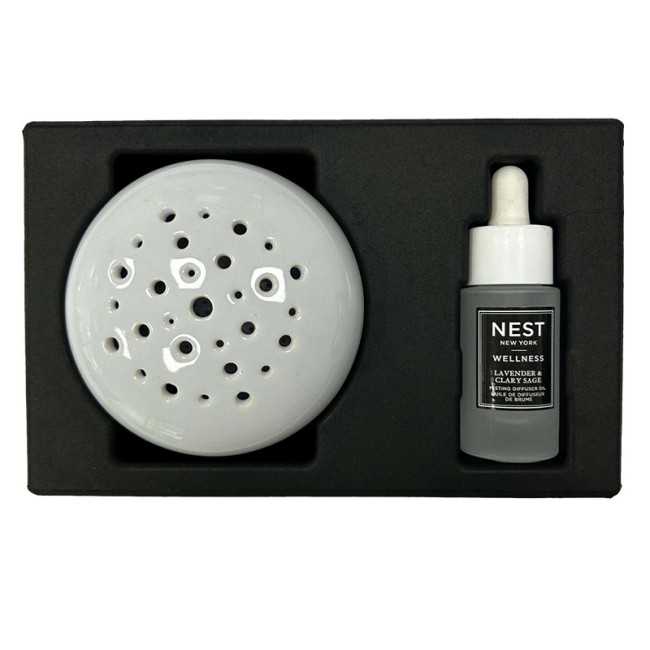
1. Aesthetic Appeal: Does Black Molded Pulp Look Premium?
For many consumers, packaging is an extension of the brand. Black molded pulp trays, with their sleek, matte finish and deep black color, offer a modern and high-end look that resonates with premium brands. Industries such as cosmetics, electronics, and gourmet food have started using black molded pulp to enhance product presentation.Unlike the traditional brown or gray molded pulp, which is often associated with low-cost or industrial packaging, black molded pulp trays provide a more sophisticated appearance. Consumers perceive them as luxurious yet environmentally responsible, making them a great fit for brands looking to position themselves as both premium and sustainable.However, some consumers still associate pulp-based packaging with a rough texture, which may not align with certain high-end branding strategies. Advanced manufacturing techniques, such as precision molding and surface treatment, are helping improve the smoothness and tactile quality of molded pulp, further enhancing consumer acceptance.
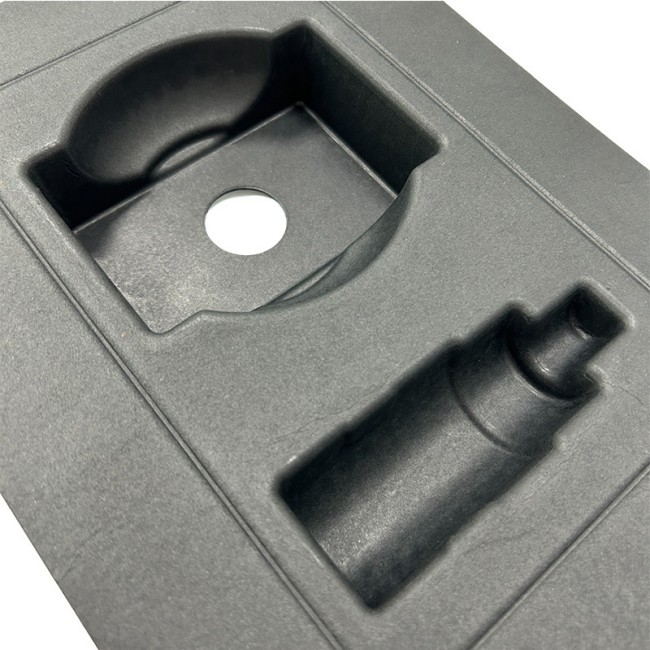
2. Environmental Impact: Do Consumers See It as a Sustainable Choice?
With increasing awareness of plastic pollution and waste reduction, consumers are actively searching for eco-friendly packaging solutions. Black molded pulp packaging is seen as a strong alternative due to its biodegradability, recyclability, and use of renewable resources.Made from recycled fibers: Unlike plastic packaging, which relies on fossil fuels, black molded pulp is produced from recycled paper and natural fibers, reducing waste and promoting a circular economy.Compostable and biodegradable: Many black molded pulp trays naturally decompose within a few months, depending on environmental conditions, unlike plastic that can take hundreds of years to break down.Lower carbon footprint: The energy consumption and emissions in the production of molded pulp packaging are significantly lower than those of plastic-based alternatives, further reinforcing its environmental benefits.
Consumers are highly receptive to brands that prioritize sustainable packaging, with studies showing that people are willing to pay more for products packaged in eco-friendly materials. However, some concerns remain regarding the recyclability of black-dyed molded pulp, as certain recycling facilities may not process dark-colored pulp efficiently. Educating consumers and providing clear disposal guidelines can help alleviate these concerns.
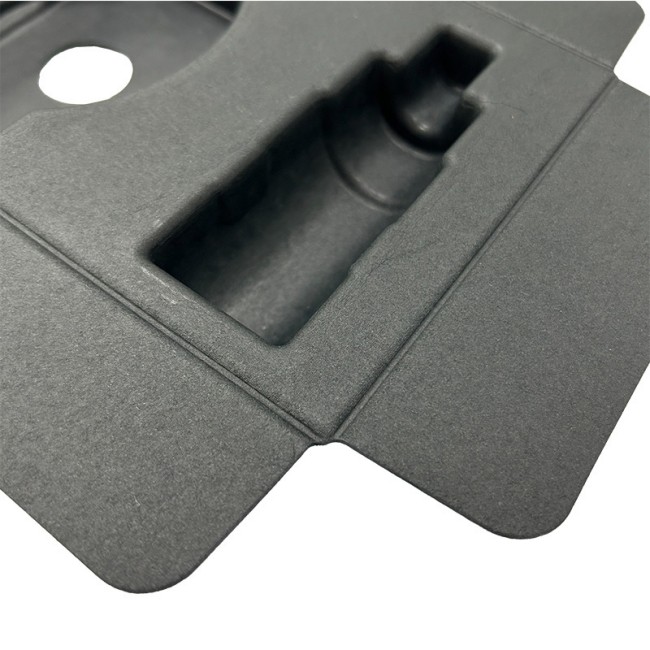
3. Durability and Protection: Can It Compete with Plastic?
One of the biggest concerns consumers have about molded pulp packaging is whether it can offer the same level of protection and durability as plastic or foam. Consumers want to ensure that packaging is not only eco-friendly but also effective in protecting the product.Although black molded pulp trays have proven to be a durable alternative, some consumers remain skeptical, particularly in comparison to rigid plastic packaging. Brands adopting custom black molded pulp packaging should highlight its strength, protective capabilities, and innovative designs to build consumer trust.
Shock absorption: Black molded pulp trays are engineered to provide strong structural integrity, making them suitable for packaging fragile items such as electronics, glassware, and luxury goods.
Moisture and grease resistance: While traditional molded pulp packaging has limitations with moisture, modern manufacturing techniques allow for waterproof and grease-resistant coatings, making them viable for food and beverage packaging.
Strength and rigidity: High-quality custom molded pulp packaging can be designed to have reinforced edges and compartments, ensuring that products remain secure during transportation.
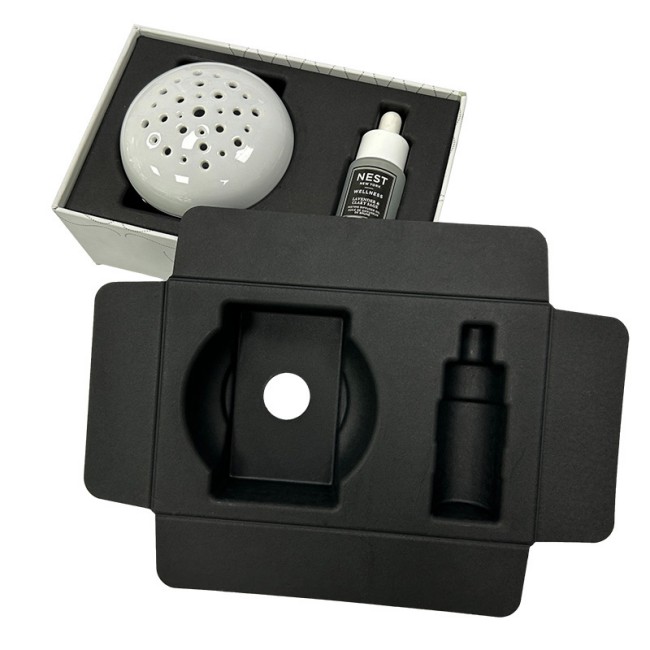
4. Functionality: Is It Practical and User-Friendly?
Consumers value packaging that is easy to use, store, and dispose of. Black molded pulp trays offer several functional benefits that appeal to both businesses and end-users:
Customizable design: Molded pulp packaging can be tailored to fit specific product dimensions, ensuring a secure fit for food items, electronics, cosmetics, and industrial parts.
Stackable and lightweight: Consumers appreciate space-saving and lightweight packaging, especially in e-commerce and shipping applications.
Heat and microwave safety: Many black molded pulp trays, especially those used in food packaging, are heat-resistant and safe for microwave use, enhancing their practicality.
Despite these advantages, some consumers express concerns about handling and perceived fragility, particularly in high-humidity environments. Advancements in surface coatings and material composition continue to improve the functionality of molded pulp, making it an even stronger competitor to conventional plastic trays.
5. Cost-Effectiveness: Are Consumers Willing to Pay More?
While sustainability is a major factor in consumer decision-making, cost remains a key driver. Consumers often compare the price of black molded pulp trays to traditional plastic or foam packaging.
Perceived value: Many consumers see the value in paying slightly more for eco-friendly packaging, especially when it aligns with their environmental beliefs.
Production efficiency: As demand grows, custom molded pulp packaging is becoming more cost-effective for brands, making it easier to maintain competitive pricing.
Bulk production benefits: Large-scale manufacturing helps reduce costs, making black molded pulp more affordable over time.
However, for price-sensitive consumers, black molded pulp packaging must demonstrate clear advantages over cheaper plastic alternatives. Emphasizing long-term environmental benefits, premium aesthetics, and durability can help justify the price difference.
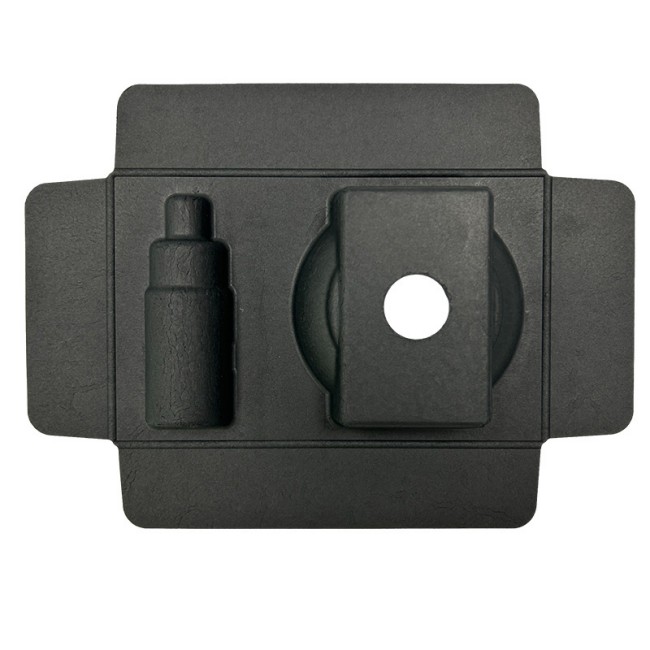
Conclusion: Consumer Perception and the Future of Black Molded Pulp Packaging
Overall, consumer perception of black molded pulp packaging is highly positive, particularly among those who prioritize sustainability and premium aesthetics. The growing preference for eco-friendly, durable, and customizable packaging solutions positions black molded pulp trays as a strong alternative to plastic. However, challenges such as misconceptions about recyclability, durability concerns, and price sensitivity still exist. Brands investing in custom black molded pulp packaging must focus on educating consumers, improving product design, and leveraging sustainability messaging to drive adoption.
As consumer demand for eco-conscious packaging continues to rise, black molded pulp packaging is set to become a preferred choice across various industries, from luxury goods to food and electronics. By addressing consumer concerns and enhancing functional benefits, businesses can fully capitalize on the growing market for sustainable packaging solutions.

